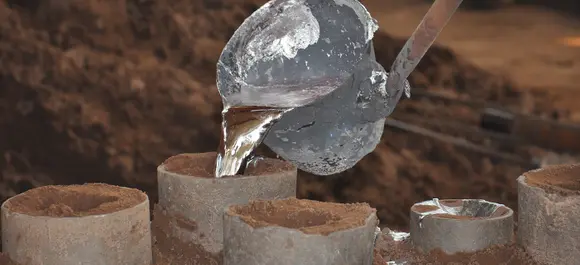Mobile:+86-311-808-126-83
Email:info@ydcastings.com
40mm pipe end cap
Understanding the Importance of 40mm Pipe End Caps
In the realm of plumbing and piping systems, various components play crucial roles in ensuring the integrity and efficiency of installations. One such component that may not receive much attention but is critical nonetheless is the pipe end cap. This article focuses on the 40mm pipe end cap, its significance, applications, and selection considerations.
What is a Pipe End Cap?
A pipe end cap is a fitting used to seal the end of a pipe. This closure serves several purposes, including preventing the entry of foreign materials, retaining pressure within the piping system, and maintaining the safety and cleanliness of the environment around the installation. Pipe end caps come in various sizes and materials to accommodate different applications, and the 40mm variant is particularly popular in both residential and industrial settings.
Applications of 40mm Pipe End Caps
The versatility of 40mm pipe end caps makes them suitable for numerous applications across various industries. Below are a few key areas where these fittings are commonly used
1. Water Supply Systems In plumbing applications, 40mm pipe end caps are often used to secure the endings of pipelines, ensuring that water supply systems remain sealed and free of contaminants. 2. Waste Management In sewage and drainage systems, end caps are employed to close pipes that are no longer in use, thereby preventing leakage and odor from escaping.
3. Construction During construction, end caps are used to temporarily seal pipes to keep them clean and prevent debris from entering the system.
5. HVAC Systems In heating, ventilation, and air conditioning systems, these caps help maintain air pressure balance and ensure efficient operation.
Material Options for 40mm Pipe End Caps
The choice of material for pipe end caps is essential, as it directly affects durability and functionality. Common materials include
40mm pipe end cap

- PVC (Polyvinyl Chloride) Lightweight and resistant to corrosion, PVC end caps are suitable for water systems and are commonly used in residential plumbing. - CPVC (Chlorinated Polyvinyl Chloride) Similar to PVC but with a higher temperature tolerance, CPVC is ideal for hot water applications.
- Steel For industrial applications, steel end caps provide strength and resilience, handling high pressure and heavy-duty use.
- HDPE (High-Density Polyethylene) This material is known for its chemical resistance and is often used in agricultural and irrigation systems.
Considerations When Choosing 40mm Pipe End Caps
When selecting the right pipe end cap for your project, consider the following factors
1. Compatibility Ensure the end cap matches the pipe’s diameter and material for a secure fit and to prevent leaks.
2. Pressure Rating For applications involving high pressure, select end caps that can withstand such conditions without risk of failure.
3. Temperature Resistance Depending on the application, it may be essential to choose materials that can handle specific temperature ranges.
4. Environmental Factors If the end cap will be exposed to chemicals or extreme weather conditions, ensure that it is made of a material that can endure such factors.
5. Regulations Be aware of any industry-specific regulations that may dictate the type of materials you can use, especially in potable water applications.
Conclusion
The 40mm pipe end cap, while a simple component, plays a pivotal role in the functionality and safety of piping systems. Understanding its applications, materials, and selection criteria is essential for anyone working in plumbing, construction, or industrial environments. By making informed decisions about pipe end caps, you can ensure your systems operate effectively and maintain their integrity over time. Whether you're a professional plumber or a DIY enthusiast, recognizing the importance of these fittings will contribute to the success of your projects.
-
Why Should You Invest in Superior Pump Castings for Your Equipment?NewsJun.09,2025
-
Unlock Performance Potential with Stainless Impellers and Aluminum End CapsNewsJun.09,2025
-
Revolutionize Your Machinery with Superior Cast Iron and Aluminum ComponentsNewsJun.09,2025
-
Revolutionize Fluid Dynamics with Premium Pump ComponentsNewsJun.09,2025
-
Optimizing Industrial Systems with Essential Valve ComponentsNewsJun.09,2025
-
Elevate Grid Efficiency with High-Precision Power CastingsNewsJun.09,2025











